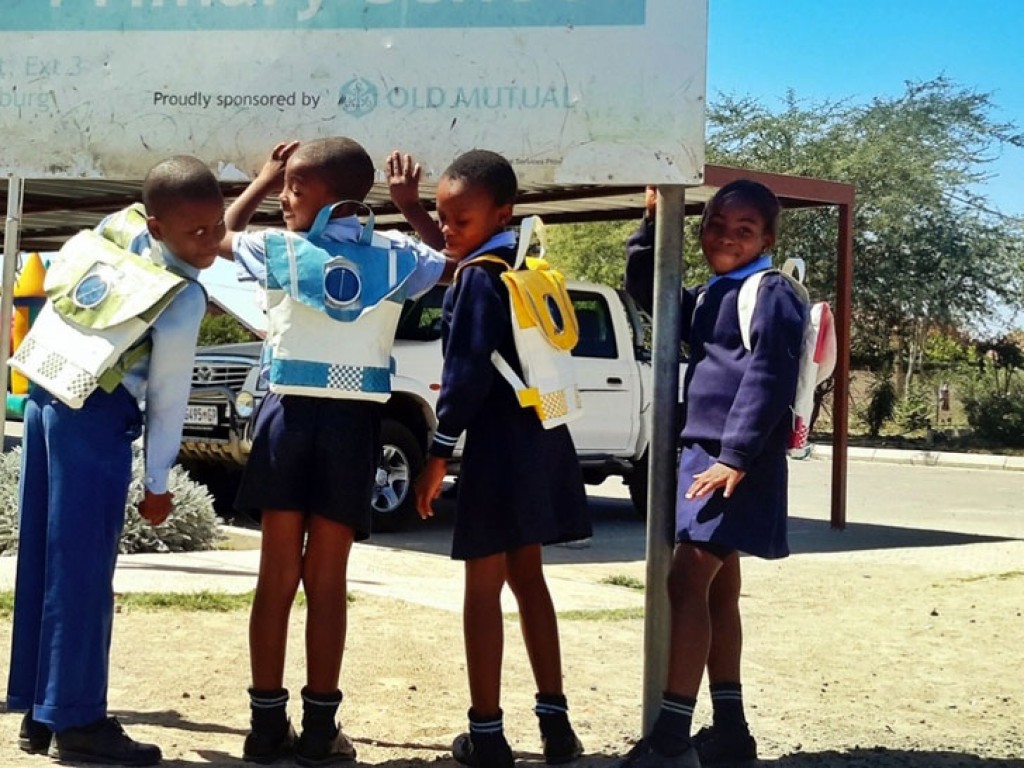RECOMMENDED VIDEOS

DS Technology - Colour Measuring Devices by Konica Minolta
DS Technology & Services Sdn Bhd

AgBiobased Viscous Detergent Builder For Green Environment
Berekotry Ltd

Yumi Return Eco Friendly Disposable Dinnerware Party Package…
eAccess Solutions Inc

Fun'Ethic, eco-friendly, natural and organic Cosmetic…
Fun'Ethic

FRP water treament tank
Hebei Xingtai FRP Co., Ltd
Related Stories
RepAir T-shirt cleans the air while you wear it
German city offers ingenious alternative to single-use coffee cups
These vegan “Star Wars” sneakers are made with discarded pineapple leaves
Loch sunglasses are made of 500-year-old timbers from the Great Lakes
Freitag Bags still going strong after 24 years
06 Jan, 2016

Repurpose’s Solar-Powered Schoolbags Do More Than Carry Stuff
Eco Products & Services | SOUTH AFRICA | 28 Dec, 2015
Published by : Ecotechtube

Another upside of using plastic? The bags are waterproof. (“There’s nothing worse than wet books,” notes the duo.) And since aesthetics played a huge role from the beginning, the backpacks are both colorful and appealing.
Repurpose spared little detail, either. Each bag includes strips of retro-reflective material, improving its wearer’s visibility and safety while walking.
Even the brand’s patchwork band has a purpose behind it. “One of our seamstresses, Pauline, ingeniously came up with this signature band made of all our offcuts,” say Kgatlhanye and Ngwane. “She says she was inspired by how everything and everyone has a purpose and therefore valuable.”
Rethaka makes it clear that it’s a for-profit business, not a charity. The bags themselves sell for 250 South African Rand ($21) apiece, but Kgatlhanye and Ngwane also seek out “giving partners,” such as Red Bull, SAB Foundation, and Standard Bank, to sponsor disadvantaged schools.
In addition, Repurpose runs “PurposeTextile” bins, set up at local schools, churches, and businesses, to collect plastic for upcycling. Not only do they create a supply of materials for the company to work with, but they also encourage students to pick up litter around their communities.
“We bank on the environment because our future leaders need us to,” Kgatlhanye and Ngwane explain.

Original Article from:Ecouterre
By:Helen Morgan
